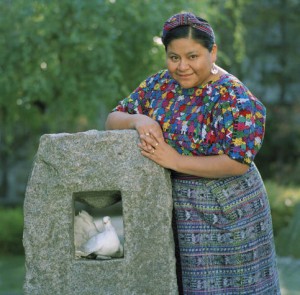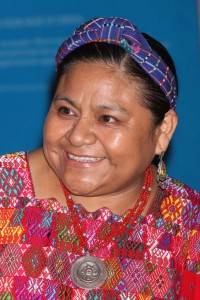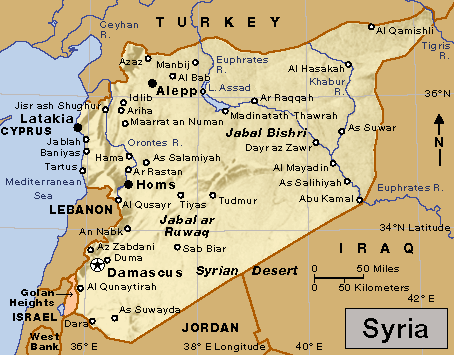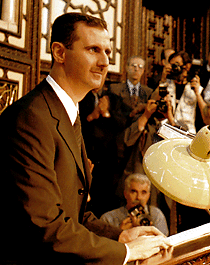Iran Protests 2022
Wednesday, October 12th, 2022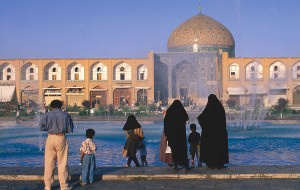
In the Middle East, Islam is the dominant religion. Islam’s followers, Muslims, worship in mosques, like the one in Iran shown here. The women in the foreground have their heads covered, as required by Islamic law in Iran. In most other countries, Muslim women can choose whether to wear a veil or head cover.
Credit: © Patrick Ben Luke Syder, Lonely Planet Images
In September 2022, public protests broke out in dozens of Iranian cities following the death in police custody of a 22-year-old Iranian woman named Mahsa Amini. On September 13, Amini had been arrested in Tehran by officers of Iran’s morality police, who enforce the nation’s strict dress code. The police arrested Amini for incorrectly wearing her hijab, the traditional headscarf worn by Muslim women. Though many Muslim women choose to wear the hijab, wearing one is required by law in Iran. Amini died in police custody on September 16. In the protests that followed, some women burned their headscarves. Women in Iran and around the world cut their hair in protest.
According to human rights groups, thousands of protesters were arrested, more than 185 people were killed, and hundreds more were injured. The authorities stated they would investigate the civilian deaths and claimed violence was caused by dissident groups. The government restricted access to the internet and social media as part of an attempt to end the protests. In response to the government’s actions, some global powers have imposed sanctions on Iran.
The protests persisted into October. Deaths of other protestors added fuel and heartache to those protesting the regime. Those included Iranian teenage girls who shared their lives and talents on social media. Nika Shakarami, a 16-year-old Iranian student, died during the protests. Iranian authorities claim Shakarami died by falling from a building. Her mother, Nasreen, said that the body was buried without the family’s consent, and records showed severe damage to her skull. Sarina Esmaeilzadeh was 16 years old and joined the protests on September 22. It was reported that she was beaten by Iranian forces and died of her wounds, although that has been denied by authorities, which claim she died by suicide.
This challenge to authorities is one of the greatest in Iran since the 1979 revolution. In 1979, revolutionaries under Ayatollah Ruhollah Khomeini, a Muslim religious leader, overthrew Mohammad Reza. The revolutionaries took control of Iran. They changed Iran’s government from a constitutional monarchy to an Islamic republic. Their policies led to strict Islamic control over all areas of people’s lives. Their rule resulted in severe economic problems for the nation. Relations between Iran and Western countries became strained.

